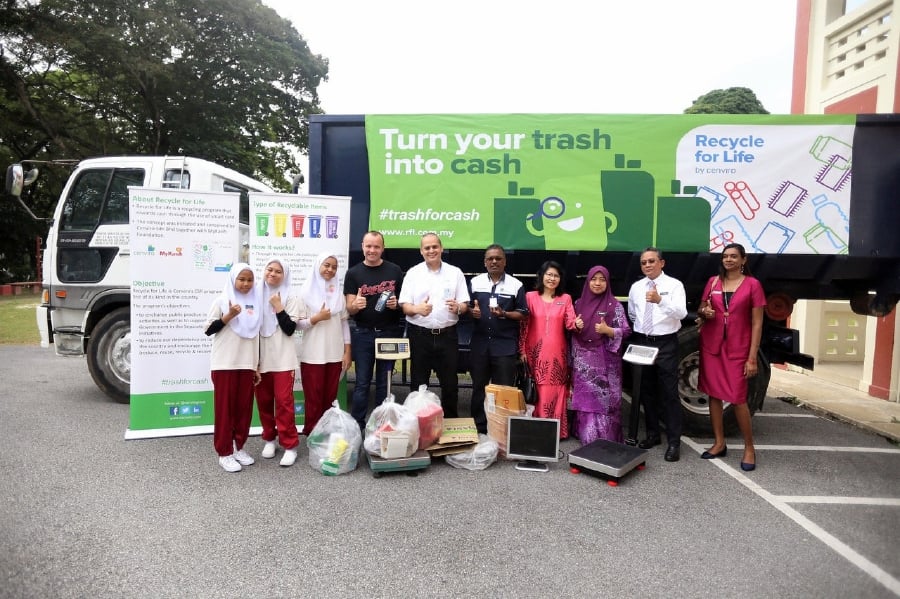KUALA LUMPUR: Can something as simple as a smart card help to reduce the amount of garbage piled up in landfill sites and make a difference to the environment?
This is what local non-profit organisation Global Environment Centre (GEC) is hoping for with the launch of the S.M.A.R.T (Start Managing All Resources Today) Ranger programme for Klang Valley students.
The programme is being implemented in collaboration with Recycle for Life (RFL), an initiative by Cenviro Sdn Bhd to encourage recycling efforts by awarding cash rewards for recyclables items through the use of a smart card.
A subsidiary of Khazanah Nasional Berhad, Cenviro – which stands for Clean Environment – specialises in scheduled waste management from downstream and midstream to upstream activities.
The S.M.A.R.T Ranger programme, funded by The Coca-Cola Foundation, is being implemented in 80 schools and expected to benefit 40,000 students who will be encouraged to practice recycling and make it a way of life. The two-year project ends in March 2020.
Besides creating more awareness among the student population on the importance of recycling and the zero-waste concept, the S.M.A.R.T Ranger programme is also aimed at training them to become entrepreneurs through the use of the RFL smart card.
The programme includes a buyback system where the students can collect selected recyclables such as steel, paper, plastic, aluminium and electronic waste and sell them to the programme initiators. The cash value of the recyclables will be credited into their smart card based on the current market prices of the items.
The smart card can be used for the purchase of goods at selected hypermarkets, partner outlets and bookshops.
The buyback system is also a self-sustaining activity for schools, where the funds raised from the sale of recyclables can be used to fund their activities.
“This is not about making money. We are trying to change people by making them think that this (recycling) is really a critical core for the future. And yes, we give an incentive, but the lesson here is (safeguarding) the environment,” Cenviro managing director Khalid Bahsoon said at the launch of the programme at SMK (P) Methodist Kuala Lumpur last month.
GEC’s River Care coordinator Dr Kalithasan Kailasam said his company was excited to team up with RFL to implement the zero-waste concept at schools, as well as to set up an inclusive buyback recycling system that was currently lacking in Malaysia.
“This system will definitely motivate and engage the students to lead local recycling efforts and become a champion in their communities,” he added.
In Malaysia, an average of 37,000 tonnes of waste is generated every day, with most of it piled up at landfills.
In Kuala Lumpur itself, an average of 1.5 kilogrammes of waste is generated per person per day. It is estimated that an average of 20,000 tonnes of rubbish is collected annually from the Klang River, including plastic bottles, cans and other forms of domestic waste that can be recycled.
Although much efforts have been put in to encourage Malaysians to practice the habit of recycling, only five per cent of the garbage produced in this country end up being recycled.
Currently, the RFL smart card is only being distributed to school students because the programme organisers feel that youths were not only easier to educate but were also likely to disseminate information on recycling to their parents, friends and others through social media.
Coca-Cola Bottling Investments Group Singapore, Malaysia and Brunei chief executive officer Gareth McGeown described students as the future generation of the world.
He is confident that the students, who serve as the main infrastructure for the S.M.A.R.T Ranger programme, would be able to build a better environment in the future.
For students to do this, he stressed, they need to have a strong foundation and extensive recycling experience to facilitate the process of cleaning up the environment. — BERNAMA
